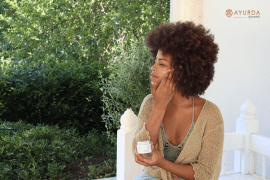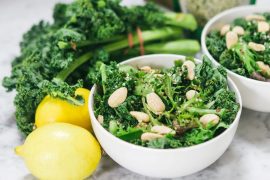Feeling strong and energetic through all stages of your pregnancy requires a nourished body and mind. Nourishing food and a healthy, functioning digestive system provide a solid foundation for the health of you and your growing baby. Iron is an essential mineral for general well being and energy through stages of growth and development. Iron is involved in red blood cell metabolism required for the delivery of oxygen and nutrients to all body cells. Iron is also required by many of the body’s enzymes involved in energy production, detoxification and hormonal balance.
How do I know if I’m low in iron? Common signs that you’re iron levels are low may include feeling fatigued, breathless and rundown, experiencing dizziness, pallor, restless leg syndrome or cold hands and feet. Low iron levels may lead to iron deficiency anemia. Talk to your health care provider about getting your iron levels checked. You may also be more prone to nutrient deficiencies if you have digestive problems, lead an athletic lifestyle or if you eat a vegan or vegetarian diet.
How do I improve my iron levels? If you have been diagnosed with iron deficiency anemia your health care provider may suggest you take an iron supplement. There are a variety of iron supplements available that vary in strength, absorbability and the effects on your digestion. Shop around to find whats best for you, we recommend iron bisglycinate as an absorbable form that is unlikely to cause constipation and digestive discomfort.
Include iron rich foods in your diet such as free range beef and venison. Pork, chicken, sardines, salmon and mussels are also good sources. Good vegetarian sources include dandelion greens, parsley, cashew nuts, pumpkin seeds, kelp, brewers yeast, apricots, prunes, dates and molasses.
Combine iron rich foods and an iron supplement with foods high in vitamin C to aid absorption. Kiwifruit, citrus fruits, capsicum and broccoli are excellent sources of vitamin C. Taking your iron rich foods and supplements with a vitamin B complex with further aid absorption.
Some foods may hinder iron absorption. It’s best to take your iron supplements away from these foods. Constituents and foods that inhibit iron absorption include tannins found in coffee, tea, chocolate and red wine and phytates found in soy, wheat and corn. Take your iron rich foods and iron supplements a few hours away from eggs and calcium supplements as they can also inhibit absorption.
Some herbs are traditionally used to build blood and iron levels. Ashwaganda (botanical name Withania somnifera) helps to aid iron absorption and build health and vitality during pregnancy. Ashwaganda is also a valuable herb for the nervous system, used to calm the mind and ease anxiety. Nettle tea contains iron and is a favorite of ours for its abundance and general nourishing properties. Both herbs are best taken during the second half of pregnancy.
Ensure the health of you and your baby by eating a clean, balanced diet with plenty of variety and whole foods to provide all the nutrients and co factors required for iron metabolism. Talk to your natural healthcare provider for more information and to offer further guidance and support during your pregnancy.











